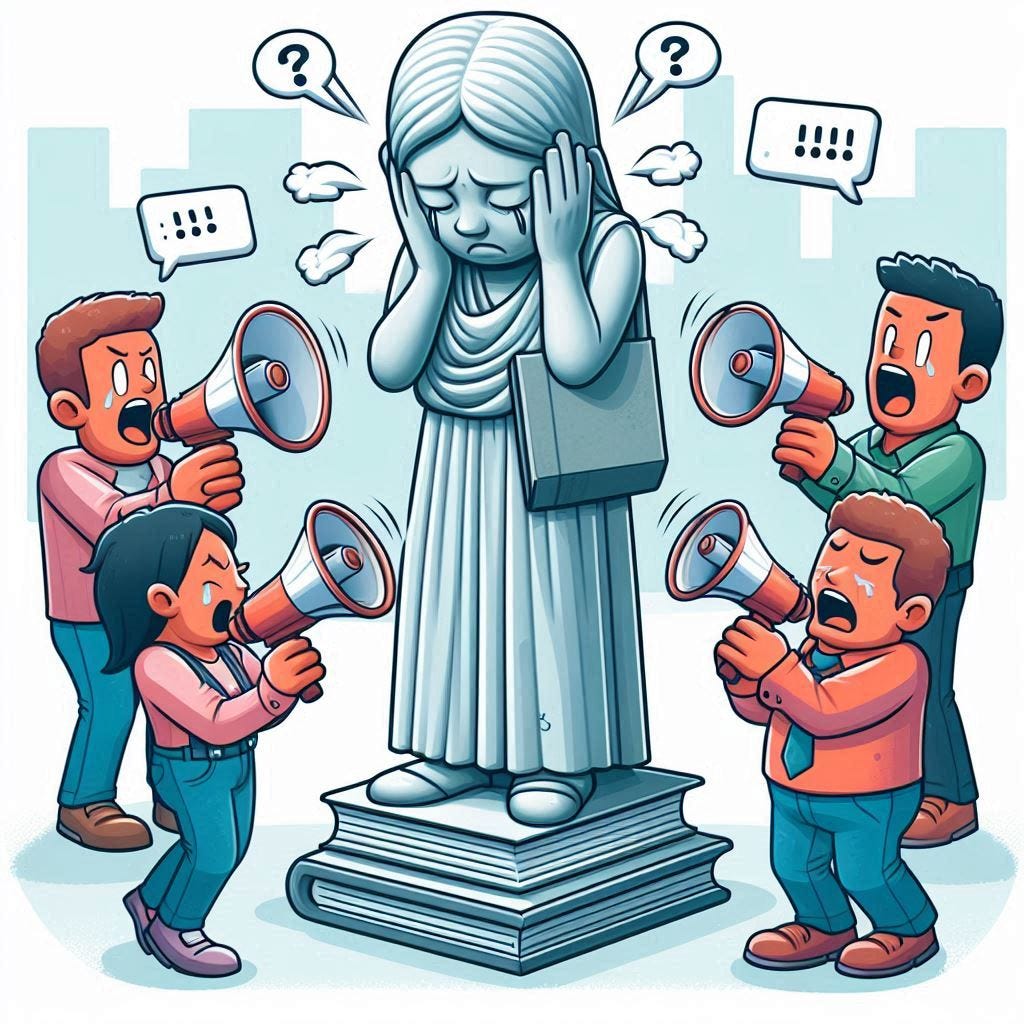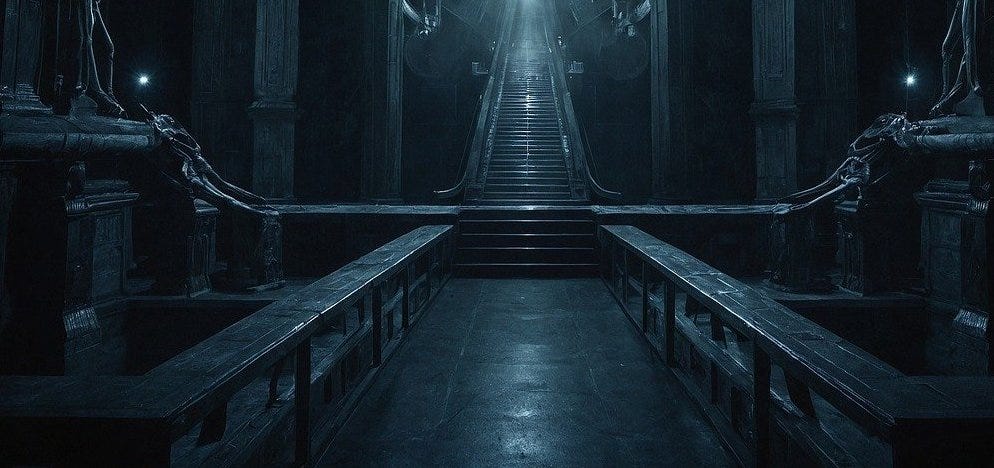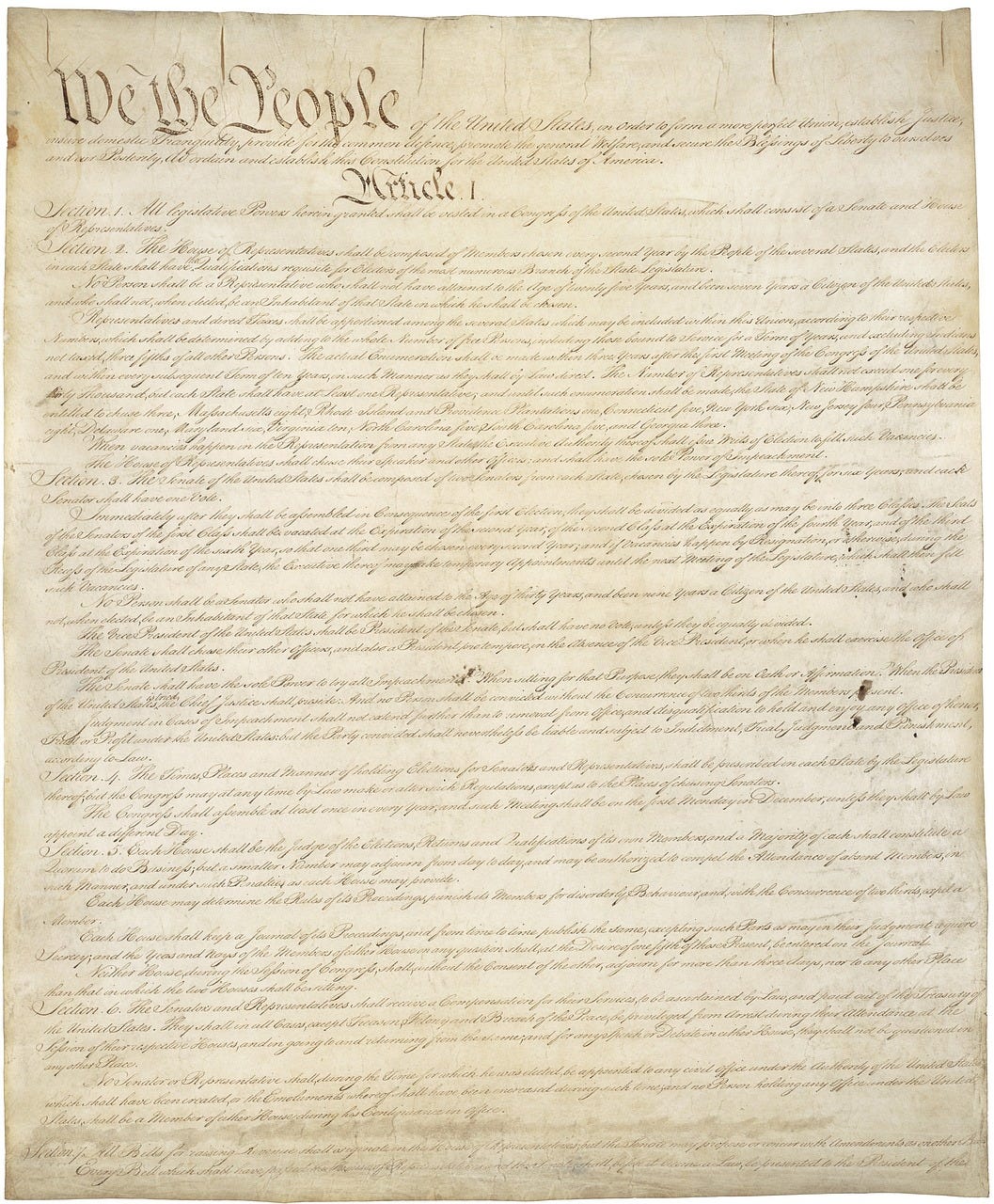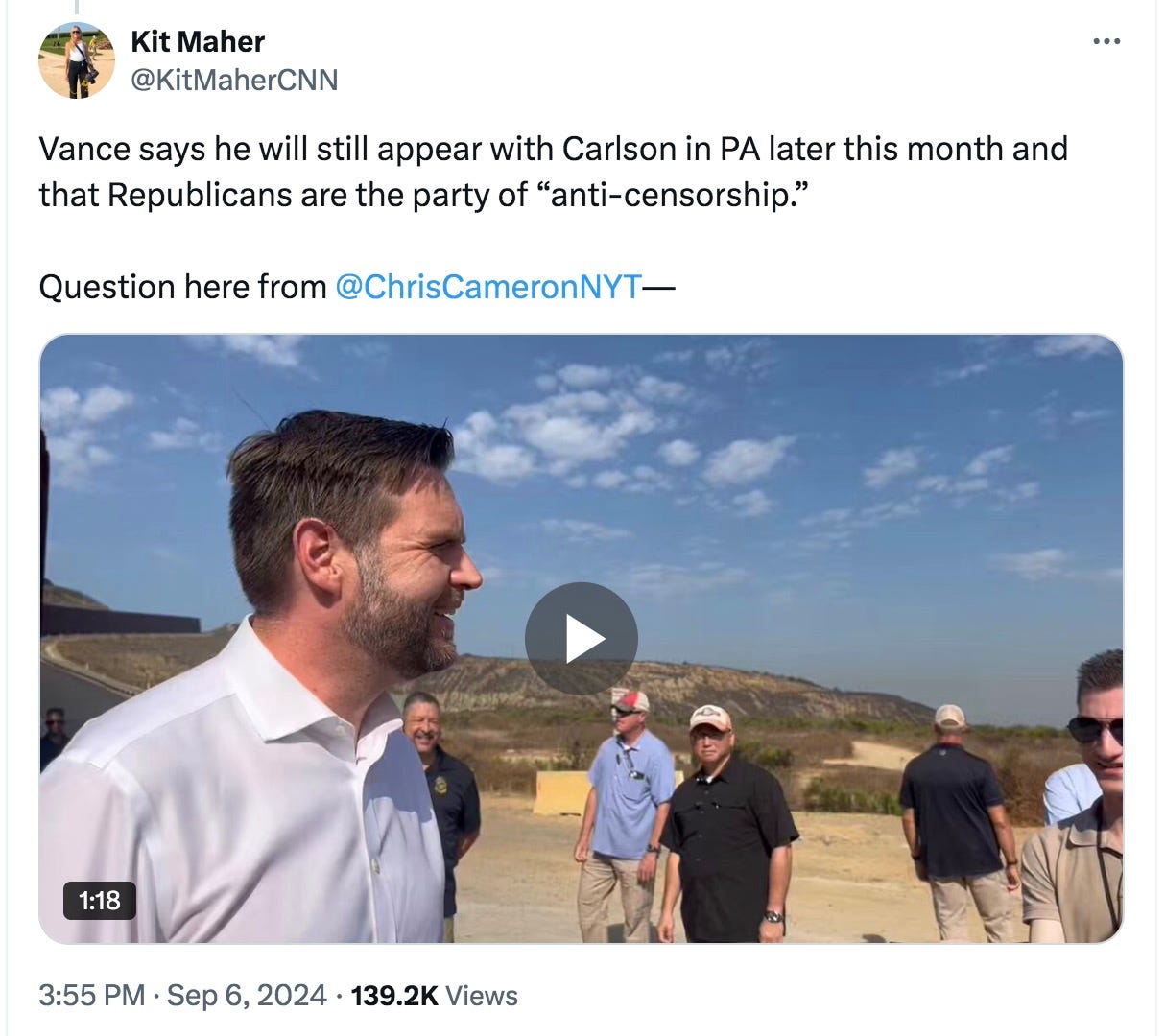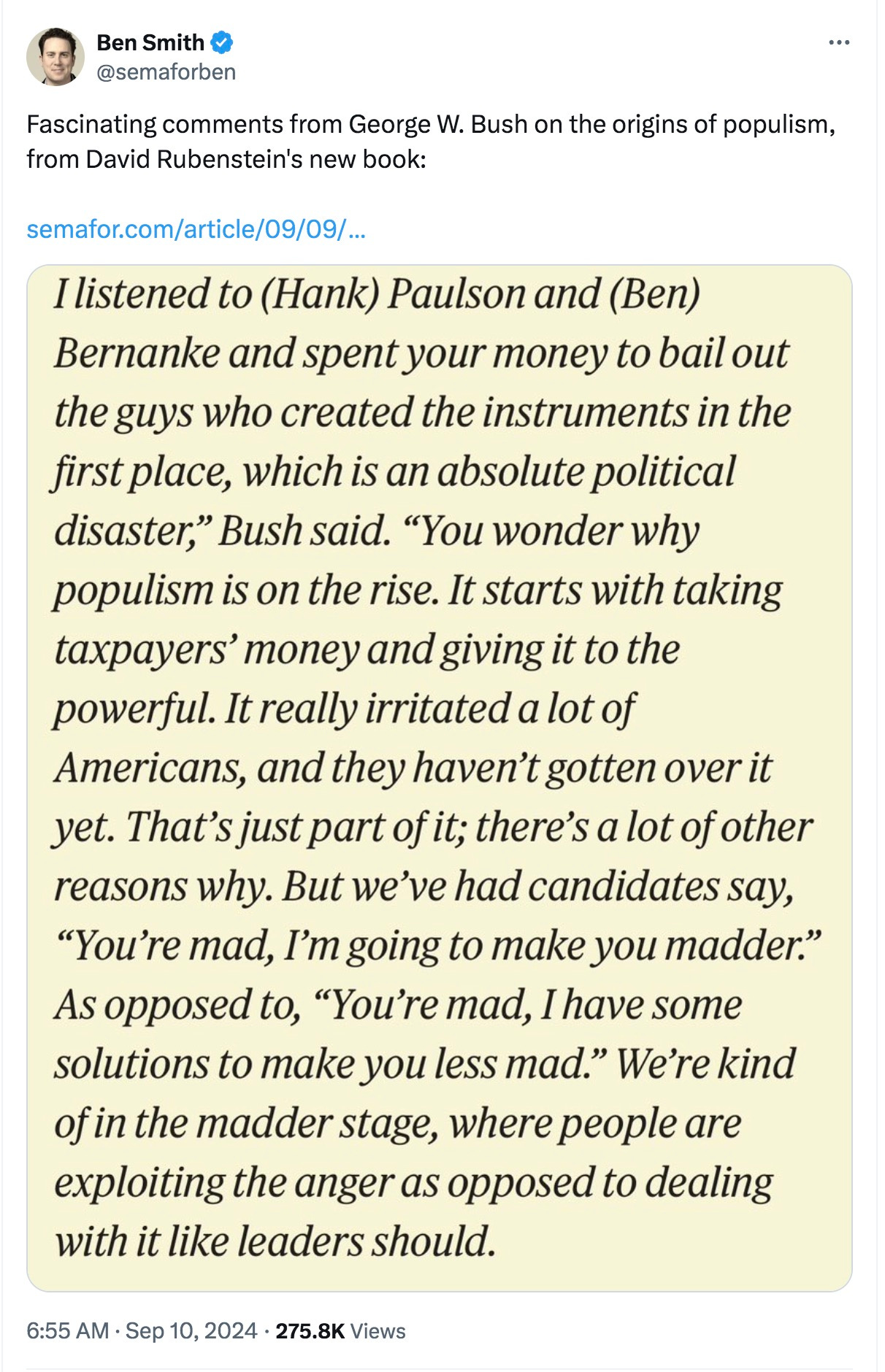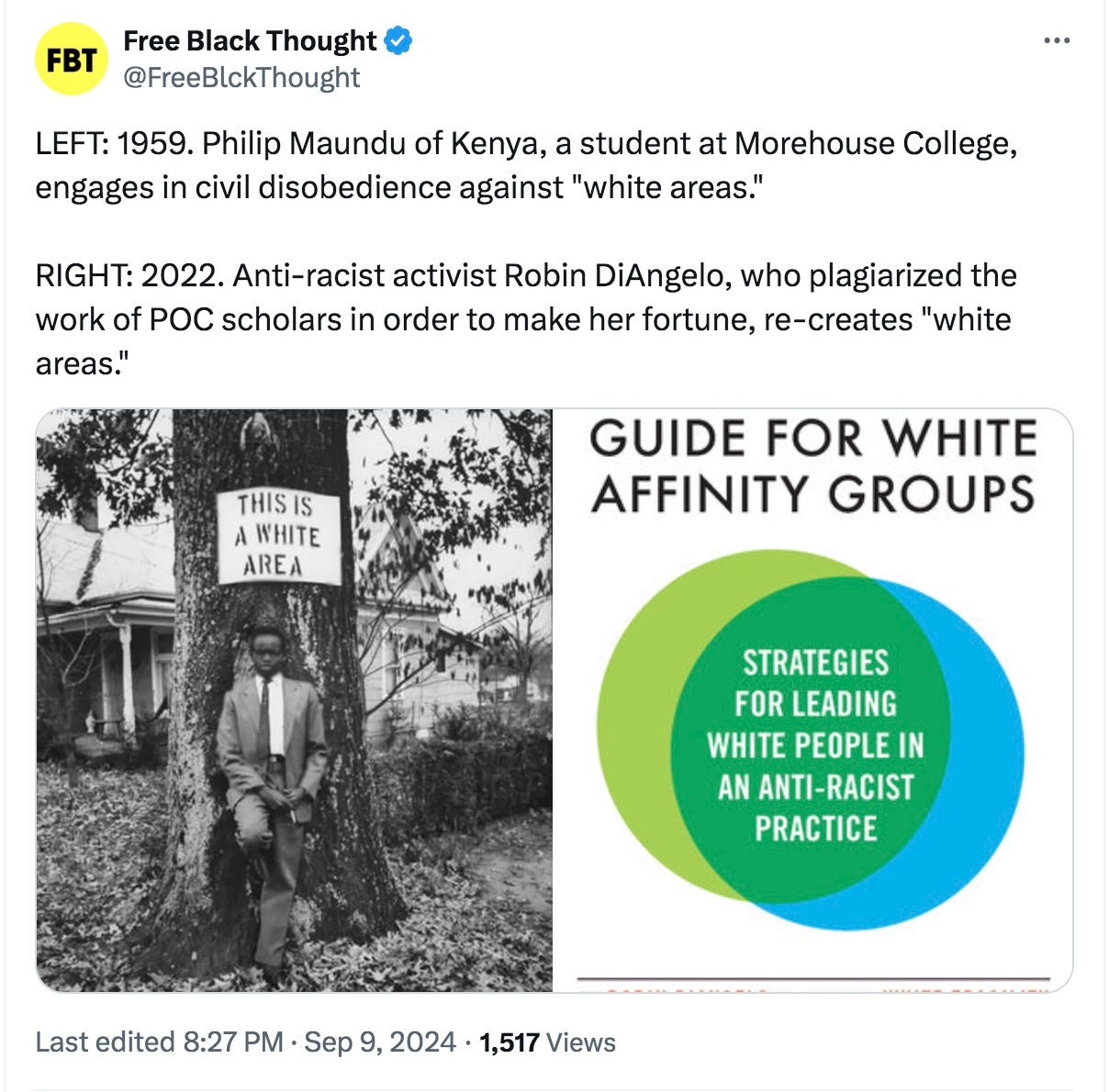A round-up of the latest and best musings on the rise of illiberalism in the public discourse:
Jacob Mchangama: Reflections on Right-Wing Cancel Culture
I’m rubber, you’re glue, Cancel Culture bounces off me and sticks to you! OK, no one has actually said that (at least let’s hope not,) but writing for Persuasion, Jacob Mchangama says the right can’t pretend it’s immune from the impulse. Using historical examples, Mchangama holds a mirror up to the right for an exercise in self-examination.
“The Left started it.”
[. . .]
[T]he idea that the Left invented cancel culture is a poor and convenient excuse for satisfying the intolerant impulses that have tempted all humans throughout history regardless of political orientation. Using similarly flawed logic, Catholic persecution of paganism was justified since emperor Nero “started it.” Protestants would be entitled to persecute Catholics, as Protestant states frequently did, because the Church excommunicated Luther, banned his books, and punished heretics. We would also have to reevaluate the censorship and persecution in socialist and communist states. After all, Marx, Lenin, and Stalin were all subject to harsh censorship from various political and religious factions of the “bourgeoisie” before the establishment of the Dictatorship of the Proletariat turned the censored into censors.
Progressive ideas have often been confronted with hostility by conservatives and proponents of the status quo. In On Liberty, the high priest of liberalism, John Stuart Mill, warned that the cultural norms of 19th-century Victorian England created “a social tyranny more formidable than many kinds of political oppression.”
This sort of “social tyranny” has also manifested itself in the United States at decisive historical moments where first principles were at stake:
[. . .]
During World War I, the first Red Scare targeted anti-war protestors and those suspected of holding or sympathizing with socialist and communist views. In 1917, the Columbia University history professor Charles Beard resigned in protest after the Board of Trustees dismissed two professors opposed to the war. The New York Times editorial board celebrated Beard’s resignation, praising the school for cracking down on doctrines “dangerous to the community and to the nation” and ridiculing the idea that “academic freedom” must include “poisonous teachings.”
During the second Red Scare of the 1940s and 1950s, the fear of communism led to the widespread blacklisting and firing of individuals suspected of having leftist sympathies. Over 378 teachers in New York City alone were dismissed, forced to resign, or take early retirement due to suspicions of communist involvement. Meanwhile, over 300 writers, actors, directors, and producers were placed on a Hollywood blacklist. The conservative American Legion criticized concepts like “academic freedom” and questioned whether communist professors should be allowed to teach on campus.
Cancellation attempts continued throughout the Civil Rights era, including the firings of those participating in activism to promote equal rights. In 1960, civil rights activist Reverend James Lawson led lunch counter sit-ins in Nashville. Lawson was enrolled at Vanderbilt University’s divinity school at the time, but, after a local newspaper described Lawson as an “agent of strife” university officials deemed his Gandhi-inspired nonviolent protest techniques too radical and expelled him.
[. . .]
The great orator Frederick Douglass was subjected to multiple cancellation attempts for his abolitionist speeches. He was almost killed by a mob shouting “kill the n*gger” after an 1843 speech in Pendleton, Indiana, and was shouted down by another mob in Boston in 1860. His response was not to demand the censorship of pro-slavery advocates. In his essay “A Plea for Freedom of Speech in Boston,” Douglass wrote that “there can be no right of speech where any man, however lifted up, or however humble, however young, or however old, is overawed by force, and compelled to suppress his honest sentiments.” Douglass also made the important point that free speech is not only an individual right of the speaker, but in fact a common good that benefits all, and thus, “To suppress free speech is a double wrong. It violates the rights of the hearer as well as those of the speaker.”
Read it all.
Christopher F. Rufo: What’s At Stake in the Censorship War
Christopher Rufo is a fierce warrior in the culture wars who makes no apologies for his aggressive tactics. Rufo writes for City Journal about what he believes is the end goal of speech suppression — keeping the powers that be in power whether they are worthy of it or not.
When the Cold War ended, many Western elites invested their hopes in the “open society”: a global system of democracies that ensured the free transmission of trade, capital, migration, and data, with limited use of force. But this system, which seemed to be consolidating through the world, was challenged by the rise of right-wing populist parties in Europe, Latin America, and elsewhere—including in the United States.
Elites responded by cracking down on right-wing voices to prop up the progressive status quo. In Brazil, for example, the government wants to restrict the flow of right-wing opinion, which dominates on X, so that it can solidify support for its left-wing government. For opponents of right-wing populism, controlling the flow of information is critical because it influences the flow of all other goods. If you cannot freely transmit information, you cannot shape political life.
The Brazil conflict reveals that the crucial locus of resistance to the consolidation of the “open society”—in reality, a system of left-wing hegemony—is technology. Prior to Musk’s takeover of X, governments had developed a working relationship with the major social media platforms, which were, through incentives and aligned interests, restricting the speech of conservative journalists, activists, and political figures, including that of a sitting president, Donald Trump.
Musk, however, has disrupted this consensus not only by purchasing the most important social media platform but also by exposing the collusion between the government and the company’s previous leadership to censor political opinion. And he has refused to bow to foreign governments’ demands of further content moderation.
This battle is being fought around the world. In the United States, a heated conflict over censorship, disinformation, and free speech rages on. In England, the police are shutting down speech and arresting citizens who publish disfavored opinions online. The European Union has passed the Digital Services Act, which will further restrict the range of opinion under the guise of “fighting disinformation.” And like Brazil, other nations have blocked certain platforms entirely.
Suppressing dissent is the ultimate goal. Elite opinion around the world is remarkably consistent; the rise of populist ideologies, formulated and disseminated online, has become a major threat to these elites’ worldview and power.
Read it all here.
Cass R. Sunstein: Only the First Amendment Can Protect Students, Campuses and Speech
Harvard and other universities have struggled badly in recent years to maintain an atmosphere of free expression on their campuses. At the New York Times, Harvard law professor Cass Sunstein says his school and others must turn to the Constitution for the only answer that students and faculty need to protect their rights: the First Amendment.
There have been intense debates about whether antisemitic speech, as such, should be banned on campus, and about the right definition of antisemitic speech. With the new academic year starting alongside a looming presidential election, we can expect protest activity on a host of issues, raising fresh questions about free speech on campus.
To answer those questions, we should turn to the First Amendment of the U.S. Constitution, which states that Congress “shall make no law … abridging the freedom of speech.” Those words provide the right foundation for forging a new consensus about the scope and importance of free speech in higher education.
[. . .]
It is true that private colleges and universities, unlike public ones, are not subject to the First Amendment, which applies only to public officials and institutions. If Harvard, Stanford, Baylor, Vanderbilt, Pomona or Colby wants to restrict speech, the First Amendment does not stand in their way.
Still, most institutions of higher learning, large or small, would do well to commit themselves to following the First Amendment of their own accord.
[. . .]
Whenever colleges and universities seek to regulate speech, they need to distinguish among three kinds of restrictions. Some restrictions are based on viewpoint. A university might, for example, try to punish speech that is sharply critical of Israel or Christianity, or that denies the reality of climate change, because of the viewpoint that it expresses.
Under the First Amendment, restricting speech because of its viewpoint is anathema and usually unconstitutional. It strikes at the heart of the system of free expression.
Other restrictions are based on content, but not on viewpoint. A university might say that students may not discuss certain topics, such as civil rights or foreign affairs, without punishing any particular point of view. Under First Amendment doctrine, content-based restrictions are also strongly disfavored; the courts are exceedingly reluctant to uphold them.
Still other restrictions have nothing at all to do with content. If students are not allowed to speak loudly in dormitories after midnight, it doesn’t matter whether they are supporting affirmative action programs, calling for daily prayer or saying that Hitler had a lot of good ideas. Courts usually uphold content-neutral restrictions if there is a strong reason for them and if they don’t unnecessarily intrude on freedom of speech.
[. . .]
To be sure, we can imagine hard questions here. The First Amendment provides a framework, not an algorithm. And religious schools and military academies have distinctive missions, which might justify special rules.
Still, freedom always deserves the benefit of the doubt. The educational mission does not give colleges and universities a green light to punish speech that their alumni, their donors or influential politicians abhor or perceive as harmful. As Justice Oliver Wendell Holmes Jr. put it, “we should be eternally vigilant against attempts to check the expression of opinions that we loathe and believe to be fraught with death.”
Read the whole thing.
Around Twitter (X)
J.D. Vance is scheduled to appear with Tucker Carlson later this month on Carlson’s tour. Vance was asked about the controversy over a recent Carlson guest. (Click for video.) Though Vance suggested this is a “censorship” issue, he did not explain who was censoring and who would be censored if he declined to show up at Carlson’s event:
Ben Smith posted an excerpt from a new book that includes an interesting observation from George W. Bush about the rise of populism and the part he himself played:
And finally, Free Black Thought presents the following contrast:




